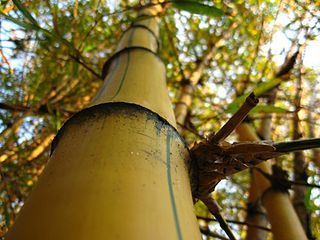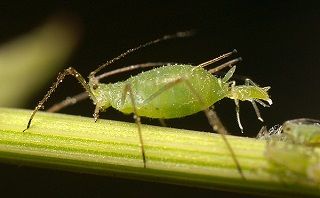Larger Lessons Can Be Learned From the Garden
My brother and sister- in-law both retired from their respective careers last year and moved to a rural part of Kauai. They have a lovely home on three acres and dedicate a great deal of their time to the pursuit of organic gardening nirvana. The property features several different types of wonderful fruit trees, and probably a few dozen different types of vegetables growing at any given time.
I had a conversation yesterday with my brother upon his return from a seminar he had attended on pest management. He told a couple of stories that I thought I would pass along, insofar as they are relevant to humankind’s larger task of living in a fragile environment.
— Using poison to kill ants obviously isn’t part of organic gardening, but even if it were, it’s intensely difficult. Surrounding the queen ant live five different groups of supporters, only one of which has authority to bring food to Her Majesty. This means that if you are successful at getting an ant to accept a piece of poison, you have only a 1 in 5 probability that this particular individual has access to the queen, and thus a low probability of causing her death. Worse, here’s what actually happens when you are, in fact, successful in killing the queen and thus the colony: the bodies decompose over a short period of time, leaving a wonderful network of already dug tunnels for a new colony to establish itself that much more quickly and successfully.
— As anyone who has ever attempted it can attest, successful vegetable gardening requires excellence in pest management. This is quite an art form, given the vast number of different threats to the bounty you hope to produce. Between the aphids, beetles, mites, fungus, snails, slugs, birds, etc., there is virtually no end to the list of possible enemies. But establishing the exact type of hostility is only the beginning of the challenge. Virtually any act that one takes, whether it fits in with the strictures of organic gardening or not, is very likely to kill not only the pest, but the natural predators of that pest as well. For example, let’s acknowledge that aphids (pictured right) are in fact a nuisance. Yet most of the tactics that one would take to kill or discourage aphids would do the same to their natural predators, spiders. And which life form will return first? The one that’s lower on the food chain.
Success in this space requires an in-depth understanding of the dynamics of the garden, but that’s just the start. From there proceeds an extremely delicate task, one that nature, paradoxically, has made especially difficult: adjusting natural balances in your favor; the ecosystem did not evolve to make it easy for you to grow your kale and other “super-foods.”
I bring this up only to suggest the analogy to our civilization’s perilous situation in dealing with the environment around us as our population expands and our modes of living become increasingly aggressive against the natural world. Especially over the last century, we’ve seen how humankind has been capable of causing such incredible levels of damage to delicate balances that form the fabric of nature.
It certainly is a considerable challenge to get our civilization to stop the onslaught here. Witness the difficulty we’re experiencing migrating from fossil fuels in the direction of renewable energy. And fortunately, nature herself is magnificently effective in reversing damage, given a sufficient length of time. That’s good news, since, as suggested by the two anecdotes above, it’s not as easy for our civilization to be of too much help here, even with its most advanced technologies, as we find ourselves mired in a world of unintended consequences.
By far the best path to a healthy environment is not to damage it in the first place. We’re reminded of what wise people have been telling us for centuries, e.g., an ounce of prevention is worth a pound of cure.


